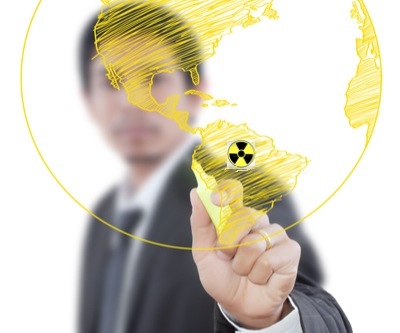Regarding pan-Arabism, my thoughts:
- Oman is unlikely, it is very culturally distinct due to being their own branch of Islam (Ibadi).
Pretty much, it's just part of the Gulf Council because it's in the same geographic region and speaks the same language.
- In Lebanon, it'll instantly become a sectarian issue. Maronites will reject it entirely (some of them go as far as claiming they're phoenicians to avoid being bundled with Arabs), as will some of the other minorities, but the rest will in all likelihood embrace it because the Maronites hate it.
"some of them"? I think some of them already did during the Lebanese civil war to legitimize their break from the Sunnis and Shi'ites, and some even before that. It's not exactly new. The Shi'ites might be chummy towards Iran and Syria (both ruled by Shi'ites) but would rather not have to be pawns in someone else's game. The Sunnis, as always, would be the ones most eager for Pan-Arabism.
- Syria and Iraq are likely to be the hotbeds for it despite the attempts to control it by their occupiers, as happened with the first round of Arab nationalism, simply because they're broken shells. The Kurds won't like it.
Iraq more likely, since we've established Syria as being Alexander's loyal ally, though yes, the Syrian Sunnis will still heed the siren call of Pan-Arabism.
- Jordan may join in, but I doubt the Jordanian government (is it still a monarchy?) would want too much to do with it.
If the government is stable, it will be the monarchy. Simply because a lot of the socio-political and ethnic juggling act that is Jordanian politics is centered around the Hashemites keeping the throne. They'll amend the laws to keep it that way, and do whatever it takes to keep the Army loyal too. Though should there ever be a weak Hashemite monarch, or if the monarchy breaks, the whole state is going to implode. Frankly, I'm impressed they made it this long: they'd be the last bastions of whatever passes for sanity in the Middle East, but then again, Middle Eastern monarchies tend to be hardier than most give them credit for, since
failures tend to end in brutal bloodshed.
King Hussein II would be pushing 80 if he's still alive; if not, it's up to his successor.
The government will not want to do anything to do with Pan-Arabism, because it was trouble the last time around (the 1950s and 1960s) and it'll get them in trouble with Alex now. They've already got issues with the collapse of various states around them, and the fact that Syria likes to lean on them sometimes to flex its strength. But the living standards are getting worse, and society is probably mostly under the poverty line. Pan-Arabism unites them and gives them a cause.
- Palestinians (if there's still any living in the place, the diaspora otherwise) will probably take a liking to it because it gives them hope of support from the rest of the Arabs.
Some of the older folks would argue against it; their grandparents believed in Nasser and he failed. But with radical Islamic movements defeated or discredited, the Palestinians would probably look to Arab Nationalism (or Arab Neo-Nationalism - damn, that sounded ominous) for larger Arab support.
- Saudi Arabia without the oil or holy cities frankly doesn't matter one way or another, except maybe as a place to retreat and disappear into.
Back to being an empty wasteland where nomads and outlaws live, dotted with fewer oases than there once was.
- Egypt is a cointoss between wanting strongly to be their own thing or being pan Arabist. They may see it as a way to project their power and size in the region, but it's also on a collision course with Russia and they may just want to absorb the more useful refugees and build their own thing while focusing on influencing the AU.
Pretty much. Egypt may not have been the birthplace of Arab Nationalism the first time around, but it was certainly a big part of the ideology in its heyday. With the collapse of the Sykes-Picot world and the Collapse in general, it's returning to its former strength in a rather Malthusian way, and Pan-Arabism is a possible way of returning to leadership in the Arab world in general.
Sudan would have run itself into the ground thanks to successive incompetent and corrupt governments that leaned too heavily on the ethnic fault lines and broke the country then abused the hell out of its resources. Egypt would have consumed its Arab parts easily. As for Libya, IIRC, there were reports a few years back that the aquifer supplying Libya is being depleted and that salt water is seeping in - I think it was around 2016. By 2070, it would have absolutely been depleted, and if Alexander just wrecks any desalination projects, then Libya's dead. There's no real way to keep it going, especially if the oil trade is dead or very strictly regulated by Russia. It wouldn't take much for Egypt to absorb it (Tunisia is too small to take much except a few border areas for security, and Algeria's main population concentration is too far away to care about the rest) or at least absorb Cyrenaica (the eastern part), but it would be seen as an empty backwater with oil they can't use and hard-to-deal-with locals.


